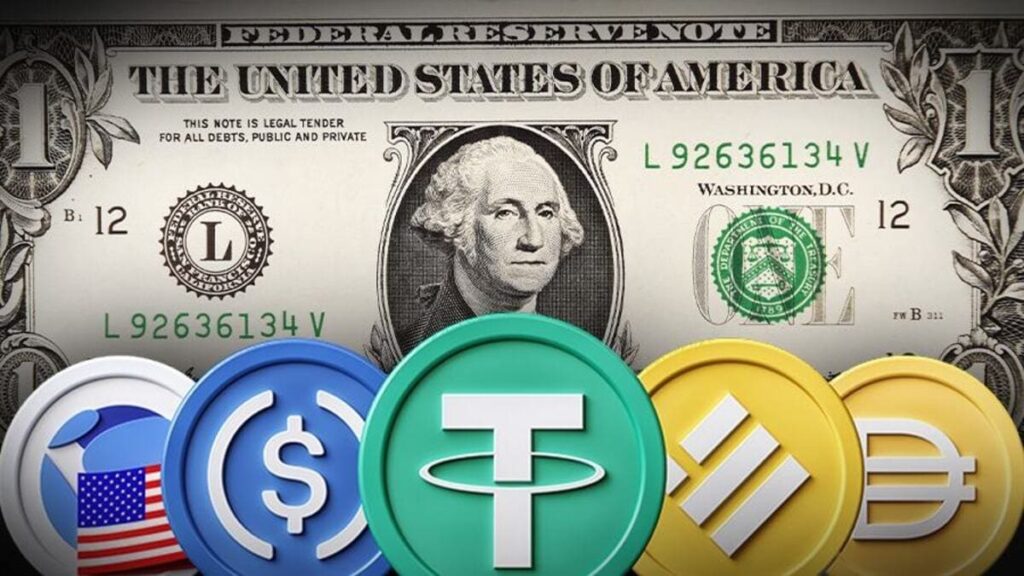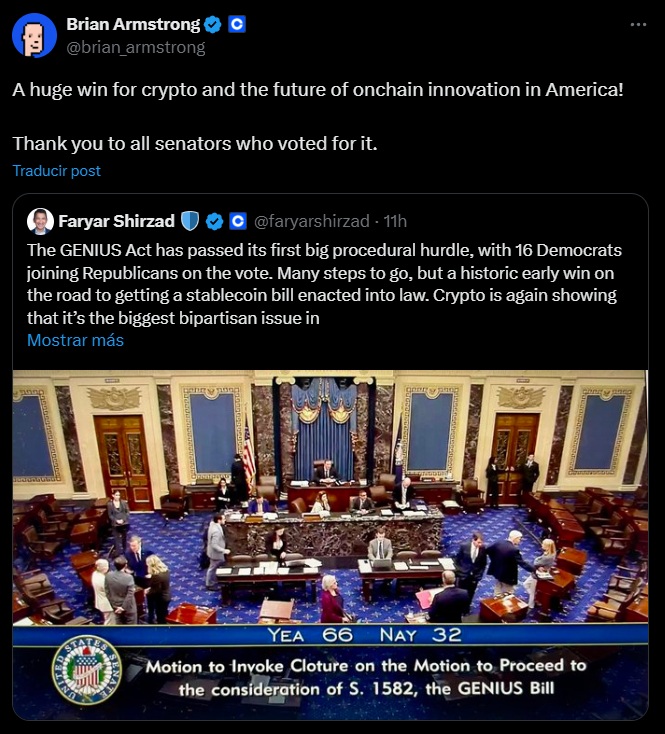TL;DR
- The GENIUS Act cleared its first procedural vote in the Senate, with support from 16 Democrats and the entire Republican bloc.
- Coinbase warned that if the Senate blocks the GENIUS Act, voters will remember who stood in the way of regulating the stablecoin market.
- Elizabeth Warren claimed the bill could pave the way for political corruption by allowing ties between public officials and stablecoin businesses.
The U.S. Senate approved a crucial procedural vote on Monday for the advancement of the GENIUS Act, a bill designed to establish clear rules for the operation of stablecoins in the country. The initiative, led by Republican Senator Bill Hagerty, secured bipartisan support by adding 16 Democrats, despite rising tensions in Congress over the past few weeks.
Coinbase CEO Brian Armstrong described the outcome as a highly important achievement for the crypto industry, emphasizing that progress like this confirms the growing political influence of on-chain technology in Washington.
The company urged the Senate to move quickly to open substantive debate on the bill and set aside partisan tactics. Paul Grewal, Coinbase’s Chief Legal Officer, warned that voters would take note if Congress let this opportunity to sensibly regulate a growing market go to waste.
What Is the GENIUS Act?
The GENIUS Act aims to create a legal framework for stablecoins — digital assets tied to traditional currencies like the U.S. dollar. The bill lays out operational standards, compliance requirements with current financial regulations, and consumer protection measures. It also includes oversight under laws such as the Bank Secrecy Act, designed to prevent financial crimes.
Controversy Around World Liberty Financial’s Stablecoin
Meanwhile, debate around the GENIUS Act intensified after news emerged that World Liberty Financial, a company linked to Donald Trump, plans to launch its own stablecoin. This development led several Senate Democrats who had previously backed the bill in committee to withdraw their support during the floor vote. Elizabeth Warren, one of the bill’s harshest critics, argued that the proposal could open the door to political corruption by allowing elected officials to become involved in these kinds of businesses.
Today, the U.S. stablecoin market exceeds $200 billion and operates in a regulatory environment filled with legal uncertainties. For much of the financial sector, the lack of clear rules undermines the country’s competitiveness against other jurisdictions that already have established legal frameworks. The ongoing Senate debate will be pivotal for the future of the crypto industry and for how digital currencies integrate with the traditional financial system.













